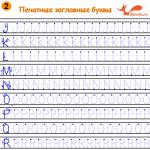How to increase immunity in case of gastrointestinal diseases. The intestinal immune system and its interaction with microflora
In the course of numerous studies, scientists have come to the conclusion that the basis of all human immunity is in the intestines. The microflora of this organ does not just regulate the immune system, but is directly related to the autoimmune disorders of our body. As soon as this sensitive and fragile eco-world is faced with a problem - junk food, alcohol, antibiotics, etc., the whole physical and emotional state of a person loses balance and begins to mope.
We are what we eat
Colonization of the intestine with a balanced microflora is of great importance for the proper development of the immune system. Millions of different bacteria have strictly fixed functions, they play an important role in digestion - they help break down proteins, fats and carbohydrates, produce vitamins and amino acids, and maintain normal bowel function.
A person coexists with bacteria on mutually beneficial conditions - supports their vital activity with the help of wholesome and healthy food, in return they help health. But this perfect picture is actually less and less common. There is hardly a person who has never experienced bouts of nausea, diarrhea, bloating, or allergies to any product. All these problems signal to us that the balance in the intestine is disturbed, which means that we should expect failures in the defense system of the whole organism.
The most important group of intestinal microflora is called obligate. It includes three types of beneficial microorganisms: lactic acid bacteria (bifidobacteria and lactobacilli), enterococci and colibacteria. The former create a natural protective barrier located between foreign bodies and intestinal walls. Bifidobacteria carry out their activity in the thick part of the digestive organ, and lactobacilli - in the thin one. Enterococci take part in the synthesis of vitamins, assimilation of carbohydrates, and the destruction of pathogenic microflora. True, some strains of enterococci sometimes cause various infections: meningitis, diseases of the genitourinary system, diverticulitis, pleurisy, and others. This is due to the acquisition by these bacteria of properties that help to fight for survival in an aggressive environment. Well, colibacteria, using immune mechanisms, suppress the development of pathogenic intestinal microflora.
The mechanism for creating immunity by the intestine is carried out by special cells - lymphocytes, which produce specific substances - immunoglobulins A and M, which recognize infections, determine the degree of threat and fight it.
The successful cooperation of these two immunoglobulins allows not only to defend against foreign pathogenic bacteria, but also to help beneficial bacteria to attach to the intestinal wall and stand guard over our health. All over the intestines are covered with a dense film that protects it not only from bad bacteria, but also from chemical and physical irritants.
What's the trouble?
The balance in the intestinal microflora system is disturbed by various factors:
Antibiotics. These are very effective medicinal substances, but their disadvantage is poor selectivity, in other words, they do not care who to kill - evil microbes or beneficial microflora.
Treatment with chemotherapy or radiation therapy.
Systemic diseases - cancer, AIDS.
Tap water. For disinfection and purification of drinking water, chemicals are introduced into its composition - fluorine, chlorine. These substances kill the intestinal microflora.
Bad ecology.
Eating disorders, etc.
Excess sugar. It can lead to an increased proliferation of fungi of the genus Candida and, as a result, to candidiasis.
Overeating is also unacceptable. If the body does not have time to cope with all the incoming volume of food, then the processes of decomposition and decay begin in the intestine, which also lead to the death of healthy microflora, and therefore to the growth of conditionally pathogenic ones. The presence of diseases that change the pH of the intestinal environment (hepatitis, gastritis, peptic ulcer, cholecystitis, bowel disease) will also have a negative effect on the number of beneficial bacteria. Violates the composition of the intestinal microflora and the low amount of enzymes resulting from diseases of the pancreas, stomach, liver.
Restore health
First of all, if you have a dysbiosis, you need to create conditions in the intestines for normal microflora. Therefore, you should avoid stress, excessive physical exertion, observe a sleep and wakefulness regime, and also establish a diet. Do not eat fatty, sour, any spicy irritating food. Food should be rich in vitamins, with the correct balance of protein, fat and carbohydrates. There should be no large gaps between meals. The last meal should be taken no later than 3 hours before bedtime. It is also important to eat slowly, chewing food thoroughly.
Many foods help maintain the immune system of the most important parts of the gastrointestinal tract (GIT) and the functioning of the human immune system in general. A true friend of the intestines is sour milk. Ayran, koumiss, fermented baked milk, yogurt and shubat have a great effect on intestinal health. Their main functions are: improving digestion, leveling the balance of intestinal microflora by replenishing the ranks of lacto- and bifidobacteria, destroying harmful microorganisms, preventing putrefactive processes in the main gastrointestinal tract.
 The active substances contained in ordinary black tea stimulate the growth of beneficial bacteria and suppress the microbes that usually live in the intestines of obese people, the main thing is not to abuse buns and sugar during tea drinking.
The active substances contained in ordinary black tea stimulate the growth of beneficial bacteria and suppress the microbes that usually live in the intestines of obese people, the main thing is not to abuse buns and sugar during tea drinking.
Vegetable foods rich in fiber: beets, carrots, cabbage, beans, apples, bran tones up intestinal motility.
Vegetables and fruits are also a storehouse of useful substances - vitamins and minerals. So, for example, a pear contains zinc, which strengthens the body's defenses and directly the intestinal immunity; garlic - a source of phytoncides that kill pathogenic bacteria, is indispensable in the treatment of dysbiosis; Jerusalem artichoke or “earthen pear”, especially boiled with milk, is appreciated for the same qualities.
Honey and propolis boast a whole range of useful trace elements and organic compounds that can cope with lesions of the mucous membrane of the gastrointestinal tract at different stages of its course. 
There are also foods that cleanse the intestines and facilitate the process of bowel movement. They are used for constipation and at the same time to improve immunity. These products include herbs (senna), oils (castor, olive, sunflower, nut), fruits and melons (apricots, figs, plums, pumpkin, melon, raisins, grapes, prunes, bananas).
To reduce the number of pathogenic microbes, drugs are used - antiseptics. After taking medications, the intestinal walls must be populated with beneficial microflora. This requires taking a combination of probiotics and prebiotics. Probiotics are medications made up of beneficial gut bacteria. Prebiotics are preparations that maintain a favorable microclimate in the intestine for normal microflora. It is important to know that their intake, as well as any other medicines, should be carried out under medical supervision. Be healthy!
All mothers know that a child's natural protection from disease is primarily provided by immunity. In the body of every person, even a baby, there are various microorganisms, both having a beneficial effect on health and a negative one. Beneficial bacteria in the baby's intestines become direct participants in the process of a protective reaction, protecting the baby from the attack of pathogens. The gastrointestinal tract contains most of the body's immune cells, the main function of which is to prevent the development of diseases.
Such multifaceted immunity
There are 2 mechanisms for the formation of immunity - congenital and acquired. The purpose of the innate is to protect the body from the simplest harmful microorganisms during the period when the acquired immunity has not yet been formed. Acquired immunity arises directly when the body comes into contact with a new type of bacteria during a disease.
It is noteworthy that the fastest and easiest way for pathogenic bacteria to enter the baby's blood is to seep through the intestinal walls. The mucous membrane lining the stomach of the crumbs is highly absorbable, and immature immunity does not immediately recognize a potential danger and does not have time to react in time. As a result, the mucous membranes of the gastrointestinal tract can colonize pathogenic microorganisms. This, ultimately, will lead to dysbiosis, diarrhea, stool disorders and other stomach disorders associated with imbalances in the intestinal microflora.
Natural immunity protection
Already in the process of passing through the birth canal and after the first attachment to the mother's breast, the natural process of the formation of its own intestinal microflora starts in the baby's body. If the child was born as a result of a cesarean section and was deprived of the opportunity to obtain the first bacteria in a natural way, then the process of populating the microflora with beneficial bacteria is disrupted.

Antibiotic treatment, artificial feeding, unfavorable environmental factors, as well as emotional experiences also lead to a decrease in the protective properties of the body. Separation from the mother, the introduction of the first complementary foods, weaning or nipples - all these stressful moments can cause a decrease in immune properties and the development of dysbiosis. To form a healthy intestinal microflora of a baby and maintain immunity at any age, it is advisable to use a natural and safe drug Acipol, suitable even for newborn babies.
Acipol is a natural synbiotic with active, live lactobacilli. The preparation contains not only a probiotic - beneficial bacteria, but also a prebiotic polysaccharide of kefir fungus, which provides a breeding ground for further active reproduction of beneficial bacteria and enhances immunity. Acipol does not contain lactose, which is especially important for infants suffering from lactase deficiency. Acipol quickly and carefully restores the intestinal microflora, helps to eliminate the symptoms of dysbiosis - abdominal discomfort, diarrhea, constipation, bloating and others, and also serves as an effective prophylactic agent to prevent intestinal problems.
Reception of Acipol, walks in the fresh air, hardening sessions and other procedures useful for the natural development of immunity will provide the baby with comfort, well-being and the full development of immunity
Defender
Immunity living ... in the stomach!
Professor-gastroenterologist Andrei Baranovsky - about why the intestine is one of the main organs in the human body
It is somehow not customary to speak out loud about problems with the intestines. Meanwhile, this organ is one of the main defenders of the whole organism. Yes Yes! About 80 percent of all immune cells in the body are located in the intestine. This is quite understandable: after all, almost everything that can harm us gets inside through the mouth and ends up in the digestive tract. His task is not only to digest food well, but also to defeat all those enemies who come with it. These are viruses, bacteria, allergens, toxins ... About how you can help the intestines cope with the difficult task of strengthening human immunity, we talk with Professor, Doctor of Medical Sciences Andrei Baranovsky, Head of the Department of Gastroenterology and Dietetics, North-Western State Medical University named after I.I. Mechnikov.
The virus will not pass!
- Andrey Yuryevich, is our immunity really formed in the intestines?
- Yes, this organ is a universal immune defense system. Directly in the intestinal mucosa, specific antibodies are produced that can cope with any aggressors - be it harmful food ingredients, toxic substances, microbes - pathogens, viruses, etc. Moreover, these antibodies spread not only over the vast "territory" of the intestine, but also into the blood and continue their work. This is why the role of the gut as the local immune system is so important in protecting the body as a whole.
- Does this mean that this body is in constant internal struggle?
- Yes, that's exactly it. But the protective function is weakened in any bowel disease: its ability to resist decreases, while the immune system is significantly suppressed. This is not always immediately apparent. Indeed, most often it happens that it is oppressed in some specific direction: for example, its antiviral or antitumor properties are reduced, and the intestines still cope with the rest of the load. Accordingly, a person will receive exactly those ailments, the causative agents of which the antibodies could not defeat. I will also note one more important function of the intestine-protector - we are talking about control over the regeneration (restoration) of those cellular structures that die off. If malfunctions occur in this process, then this can give a start to the development of tumor processes, such as polyps. And if they occur, then this leads to an even greater decrease in the defensive capabilities of the intestine. And this is a real vicious circle.
To prevent a terrible thing from happening
- Tumors are, frankly, a scary topic. Is the intestine able to prove itself as a protector here too?
- The fact that the intestine is able to protect the human body from tumor cells has been proven long ago. Therefore, I say that the function of controlling the repair and growth of cells in the intestine is very important. A tumor is nothing more than an excessive regeneration activity, that is, the growth of "extra" cells. Living in a healthy intestine, "good" immune cells can easily stop this process. But if the physiology is upset, then the antitumor capabilities of this organ also decrease. This does not necessarily mean a sentence. But in people with a tendency to tumor processes (for example, with a genetic tendency), a malfunction in the intestines can become a risk factor.
- It turns out that the intestines are the head? That is, it is necessary to monitor his health if we want to have good immunity?
- Well, you shouldn't say that the intestine is the most important human organ! Although, undoubtedly, it is very important. If you have advanced inflammatory diseases or functional disorders of the intestine, then you can expect that the functions of other structures, tissues and organs will begin to be disrupted. An example can be given: the intestine produces specific active substances that affect the vascular tone and regulate it. Therefore, people with digestive problems often have hypotonic conditions. You can often hear: "In our family, everyone suffers with low blood pressure!" And you start to study the issue - and it turns out that all members of this family have dysbiosis and constipation, including due to unbalanced nutrition.
Help your protector
- How to behave correctly in relation to such an important organ?
- First of all, to monitor the general condition of the body, to increase its ability to adequately respond to environmental stimuli, including pathogens. To do this, you need to avoid stress, psycho-emotional overload and provide the body with vitamins (which is especially important in spring, after a long winter beriberi!). Adequate physical activity and adequate nutrition are also required. The latter depends on many factors: your gender, age and even profession! This already applies directly to the intestine itself: for example, it reacts very noticeably to a lack of fiber - dietary fiber. If it is not enough, then both the motor function falls (that is, the person begins to suffer from constipation), and the protective one. But if dietary fiber and the correct microflora are in the intestines in sufficient quantities and interact correctly, then you will never have to remember about dysbiosis, which is dangerous for immunity!
Sofia VECHTOMOVA
Drawing by Maxim SMAGIN
The defense mechanism of the human body is multifaceted. Its main part is the immune system, which includes organs, cells and receptors. The connection between immunity and the intestine is that this organ, when digesting and transporting food to the exit, eliminates harmful substances from it and helps to assimilate useful ones. A healthy microflora that forms in the digestive tract maintains the normal functionality of the whole organism. Tens of billions of "soldiers" of the immune system - lymphocytes and leukocytes contained in the intestines, protect against diseased cells and produce antibodies that destroy foreign components in the circulatory and other systems. Weakened immunity threatens with diseases, the list of which is scattered across a good half of the large medical encyclopedia, therefore, immunity is strengthened, and for this it is useful to know how to do it.
To understand how close the relationship between the intestine and immunity is, read the scientific information from medical reference books.
- Immunocompetent cells are found mainly in the mucous membranes. Their largest volume is in the digestive tract. 80% of all cells of this type are localized in the intestine.
- Intestinal mucosa ( THE JUICE) - one quarter consists of immunoactive tissues and cells.
- Each meter of intestine contains ~ 10 10 lymphocytes, which is 4.5 times more than in the blood.
- Appendix, related to the structural intestinal element, is a producer and storehouse of lymphocytes, as well as a keeper of microflora.
In order for this system to work as a well-functioning protective resource, it is necessary to maintain the quality and quantity of vital microflora and to know what weakens the intestinal immunity and how this problem manifests itself.
Simple water that people drink from the tap can harm the immune system. The fluorine and chlorine compounds contained in it kill microorganisms.
Antibiotics used to treat serious diseases are also aimed at destroying microflora. These drugs do not understand where beneficial bacteria are and where harmful ones.
Environmental problems - air pollution, soil oversaturation with fertilizers, which affect the quality of consumed products. Emotional stress.
Intestinal immunity depends on these factors. Their influence is manifested by health problems. A person gets sick with colds, he has constipation, dysbiosis and flatulence, food allergic reactions. The skin reacts to immunodeficiency with the formation of acne, acne, eczema. Herpes and thrush settle in the oral cavity and genitals.
Having found in ourselves such symptoms of intestinal microflora disturbance, we turn to a doctor, and do not self-medicate!
Various ointments for skin diseases and tablets bought on the advice of amateurs will remove the manifestations of the disease, but will not eliminate the cause of the pathology. Moreover, drug treatment is not always required. Often the dietary restrictions recommended by the gastroenterologist will correct the problem.
Intestines and Immunodeficiency
You know from the previous section that the gut contains 80% of the cells of the immune system. They predominate in the intestinal mucosa. Immunocompetent cells, lymphocytes, which are the main link in the defense mechanism, produce immunoglobulins. These compounds are designed to fight infection, recognize the pathogen and destroy it. 
These substances are usually called "orderlies", they are divided into types:
- secretory immunoglobulin A blocks the attachment of bacteria to the intestinal walls;
- memory immunoglobulin (M) is considered maternal, because a person receives it with breast milk, it is designed to recognize healthy and harmful microorganisms;
- the mucous membrane consists of biofilm, which, together with antibodies A and M, produced with the help of immunoglobulins, protects the organ from pathogenic flora, toxins and physical irritants.
If the coordinated work of these links is disrupted, then an immunodeficiency is formed, which becomes the cause of various diseases. The onset of blood diseases is possible, skin health suffers, a person suffers from constipation, diarrhea, and dysbiosis. Gut health and overall body immunity are intertwined. Therefore, it is necessary to monitor the state of the organ in a constant mode, and in case of anomalies, consult a doctor.
The role of microflora in the human body
Microscopic organisms that inhabit the human body are called microflora. It is present in every organ of the gastrointestinal tract, but the content in the intestine is maximum. This medium contains lactobacilli and bifidobacteria in biofilm. Its task is to protect the organ from infections and foreign aggressive effects.
Immunity in the human intestine develops gradually. At the moment of birth, he is not perfect. The baby receives the first portions of immunoglobulins with breast milk. If there is no breastfeeding, then the baby gets a weak immune system from birth. In the fight against infection, the role of the protective mechanism is the main one, if it is weakened, then the child is more often sick and suffers ailments harder. When children get older, the process of supporting the immune system begins with the intake of vitamin complexes, prebiotics and probiotics.
Microflora functions
The purpose of microflora is to support the digestive process in the digestive tract and stabilize immune function. 
Normal flora bacteria work in several ways:
- as blockers of the attachment of harmful elements to the intestinal walls;
- as competitors in the fight for nutrients with pathogenic microorganisms;
- as assistants in the digestive process;
- protect the intestinal mucosa from the penetration of foreign components;
- stabilize the production of immunoglobulin A.
Why is low intestinal immunity dangerous?
We have already found out that the state of the gastrointestinal flora and human immunity are interrelated elements. The danger of immunodeficiency is that metabolic processes are disrupted. For example, an increase in blood sugar levels contributes to a fungal infection. This applies to the colonies of Candida fungi, which are capable of infecting the mucous membranes of the body.
Indigestion leads to the decay and decomposition of food, poor-quality products are the cause of the growth of pathogenic microorganisms. A further development of the negative process is helminthic invasion, which weakens the entire immune system. The result of pathological changes in the intestinal pH of the environment is dysbiosis and diseases of the pancreas, stomach, liver, cholecystitis, colitis.
How to restore intestinal microflora and immunity
With dysbiosis, it is necessary to take measures to normalize the intestinal microenvironment. To do this, it is recommended to follow the diet, exercise, rest and avoid stressful situations. You need to eat fresh products of natural quality without the content of harmful substances. This means giving preference to fruits, vegetables, vegetable fats.
Increase intestinal immunity with meals that have a balanced content of proteins, fats, carbohydrates, vitamins. Irritating mucous membranes, acidic, fatty foods with dysbiosis are contraindicated. The diet involves frequent meals in small portions. Food must be chewed thoroughly, do not eat at night.
Medicinal forms of restoration of microflora and immunity consist in taking medications to reduce the colonies of pathogenic microorganisms. For this, tablets from the group of antiseptics are used. For example, Nitroxoline, Enteroseptol, Furazolin. Medicines are prescribed by a doctor after a study of bacterial culture and analysis of feces. 
In addition to destroying the harmful environment, pay attention to growing colonies of beneficial bacteria. For this, biologically active additives, prebiotics and probiotics are used. They contain strains of beneficial microflora and contribute to the growth of its quantity. Common probiotics: Linex, Lactobacterin, Bifiform. Of the prebiotics, Duphalac, Hilak-Forte are more commonly used.
A good result for restoring the intestinal environment is given by the use of local suppositories. They are injected into the rectum and live bacteria enter the intestines from below, and not through the digestive tract. Pay attention to the reviews about instrumentation in candles, this is an immunoglobulin complex preparation, convenient for the treatment of dysbiosis in children and adults. Probiotic suppositories include suppositories Bifidumbacterin, Lactonorm and others. For antiseptic purposes, candles Anuzol, Viferon, Prostopin are used.
Increasing immunity with folk remedies
Among the recipes for traditional medicine, it is very simple to use strawberries, one glass a day. The course of treatment is two weeks. They eat berries on an empty stomach.
Serum helps to restore the intestinal environment. Received by heating kefir. When it folds back, that is, it is divided into cottage cheese and whey, the liquid is drained. Serum is used in a glass before meals and to quench thirst.
The second dairy product useful for bacteriosis is sour milk with garlic. Sour milk is obtained from boiled and cooled to a warm state. Then they put crackers for squash into it, and after the sourdough is obtained, add crackers, grated with garlic. Sour milk is used for lunch, for an afternoon snack.
Top 10 products that support microflora and immunity
To strengthen your immune system, drink a couple of cups of green tea a day. The drink contains antioxidants and a complex of vitamins that counteract the entry of antigens into the body. 
As probiotics, it is recommended to use garlic, leeks, onions.
Banana is an excellent natural probiotic.
Dairy products - yoghurts, kefir, skim milk containing live lacto- and bifidobacteria, doctors advise to drink every day. This will help to forget about the problems of dysbiosis and normalize the composition of microflora.
Squid and seaweed, rich in unsaturated acids, activate defense mechanisms. Seafood improves both intestinal immunity and the immune system in general.
Pumpkin seeds, rich in zinc, improve immunity. They are especially useful for the elderly.
Pistachios are recommended to support microflora for adults and children, because they contain a natural antioxidant that kills harmful microbes.
Salmon and tuna. This fish contains selenium, which stimulates the renewal of immune cells. This property ensures the healing of the body's defenses.
Hot spices pepper, cinnamon, turmeric, cloves, ginger are natural immunomodulators.
Honey, propolis, royal jelly, bee bread are beekeeping products containing bioactive substances that restore microflora and help fight immunodeficiency.
Conclusion

If you take care of your immunity, you will remain a healthy person until old age. The body is designed in such a way that it contains internal reserves that can protect a person from the invasion of infection and prevent the onset of diseases. You just need to know how to increase the level of beneficial microflora in the intestine, which performs the task of improving the defense mechanism. Use dietary advice and remember that a weakened immune system can be restored using our recommendations.
The gastrointestinal tract (GIT) is the largest immune organ. About 70% of the body's immune cells are located in the intestinal mucosa.
Why does the gut play such a big role in immunity?
The answer to this question is not difficult. After all, the intestine is the habitat of microflora - conditionally pathogenic microbes, which are normally indispensable for digestion, but when their environment changes, they can cause diseases. It is a defense against internal threats. Also, the intestinal biocenosis is open, that is, harmful microbes from the outside can easily get inside with food and water. It is protection against external threats.
Therefore, to maintain the relative constancy of the internal environment, the digestive tract has powerful mechanisms of antimicrobial defense, the main of which are:
- active substances of saliva,
- stomach acid barrier,
- active motility of the entire gastrointestinal tract,
- intestinal mucosa, which mechanically creates a protective barrier,
- intestinal-associated lymphoid tissue,
- useful intestinal microflora, which normally fights pathogens.
The oral cavity is washed by the secretion of the salivary glands, which is rich in antimicrobial substances, especially immunoglobulins. Dog saliva contains high concentration of immunoglobulin A (IgA) and lower concentration of immunoglobulin M (IgM).
The gastric mucosa contains scattered, isolated lymphoid follicles. These follicles are normal components of the mucous membrane, they are concentrated mostly in the fundus of the stomach. As in other parts of the gastrointestinal tract, scattered mononuclear cells (lymphocytes, plasma cells and macrophages) and a small number of eosinophils are present in the stomach wall.
The cecum in dogs is smaller in size than in herbivores, but rich in organized lymphoid tissue. The colon also contains a sufficient amount of lymphoid tissue, represented by accumulations of lymphoid cells and scattered mononuclear cells of the lamina propria membrane.
Morphologically, the intestinal immune system includes:
- cellular elements: (intraepithelial lymphocytes, lymphocytes of the lamina propria membrane, plasma cells, macrophages)
- structural elements: (lymphoid follicles, Peyer's patches, appendix, mesenteric lymph nodes)
Schematic representation of the main divisions of lymphoid tissue localized in the small intestine: epithelium, lamina propria membrane and Peyer's patches.
VEL - intraepithelial lymphocyte; LM - lymphocyte of the lamina propria membrane.
Lymphoid cells, activated by a foreign antigen in Peyer's patches or the lamina propria membrane, migrate through the lymphatic vessels to the mesenteric (mesenteric) lymph nodes.
The intestinal mucosa contains organized lymphoid clusters - individual lymphoid follicles. Together, they are known as intestinal-associated lymphoid tissue (GIT). LTAC is part of a large immune network that allows mucosal T and B lymphocytes to circulate in the blood or lymphatic system and communicate with cells in other tissues. These messages allow animals to respond quickly to primary infections and to detect immunological memory upon reinfection.
B-lymphocytes are responsible for the humoral immune response. It is in the intestinal structures that they mature, differentiate and synthesize immunolobulin A (IgA) on their surface - a protein that is involved in providing local immunity and is the most important marker of the immune response.
Normally, immunoglobulins are located on the surface of B-lymphocytes, are present in blood serum, in tissue fluid, as well as in secretions produced by the glands of the intestinal mucosa.
Thus, different classes of antibodies provide comprehensive protection of the body against diseases, representing the so-called humoral immunity.
IgA is the main class of immunoglobulin secreted by B-lymphocytes in the intestinal mucosa. There are several ways IgA works:
- blocking bacterial adhesion on the surface of the mucous membrane,
- adhesion of bacteria for easier destruction,
- neutralization of bacterial toxins,
- inhibiting the growth of the number of bacteria.
Antibodies that protect the intestinal mucosa can come from two sources: from blood serum and from plasma cells located in the lamina propria. Immunity against pathogenic agents is mainly due to antibodies secreted into the intestinal lumen from the lamina propria.
And serum antibodies are less effective, since an amount sufficient for local protection accumulates in the intestine only in the presence of high levels in the blood serum. In addition, serum antibodies involved in the creation of local immunity are mainly of the IgG class. IgA antibodies, and due to their resistance to proteolytic enzymes, are more adapted to protect the mucosal surface than IgG.
T-lymphocytes are responsible for cellular immunity, their antigenic stimulation occurs in Peyer's patches, represented by separate clusters of lymphoid cells located in the submucosa of the small intestine. The epithelium of the intestinal mucosa, covering the Peyer's patches, is modified, and its cells are called membrane or M cells, since they have microfolds.
The immune response is as follows. The primary exposure to a foreign antigen causes the development of B cells, some of which turn into immunoblasts and leave the plaques. Most of the cells remain in the plaques as B cells that are sensitive to this foreign antigen. Upon repeated contact with the same antigen, these cells turn into IgA-immunoblasts, which migrate first to the mesenteric lymph nodes, and then to the bloodstream, providing protection to the entire body.
Stimulated locally or deposited from the bloodstream, IgA combines with the secretory component formed in them and is released to the surface of the mucous membrane in the form of immunoglobulin. The mucus, enriched with secretory immunoglobulins, lines the surface of epithelial cells like a carpet. This provides a protective effect preventing the penetration of infectious agents. Also locally produced IgM. It exhibits properties similar to those of secretory IgA.
At the same time, the M-cells of peer plaques transport macromolecules; during the transport process, the antigenic structures of the substance are exposed and presented to T-lymphocytes. Antigens presented to T-helpers and macrophages are recognized and ultimately lead to the appearance of specific T-killers, to the production of so-called pro-inflammatory cytokines, activation of phagocytosis, and migration of neutrophils.
Thus, in the immune formations of the intestine, the pathogen is recognized, the primary humoral and cellular local and general immune responses are developed, the local and general immune memory is preserved in the event of a repeated encounter with the pathogen.
The protection of the whole organism from the introduction of viruses and bacteria depends on the efficiency of this system, and when a pathogen enters the body, an active (albeit not always obvious) counteraction to the development of the disease depends.
Therefore, feeding or drinking drugs that affect the immune system is not only justified, but sometimes more effective. For example, enteral (oral) vaccination against rotavirus infection is much more effective than parenteral (intramuscular) vaccination.
The use of immunomodulators for feeding is also a new and powerful weapon for improving the health of our pets. Indeed, in this case, the first principle is realized: prevention is better than cure. And strong immunity is the basis of prevention. If every day, together with nutrients, normalizing substances (where necessary strengthening, and where necessary, weakening) the work of immunity enter the body, such protection is not afraid of either bad ecology or stress.
Now on the market of veterinary drugs there is Prenocan - the only feed additive containing the immunomodulator polyprenol. Polyprenols are natural compounds derived from pine needles. They are the main component of the well-known antiviral drug Fosprenil.
Adding Prenocan to feed helps to normalize the body's immune status. This is especially important when recovering, during periods of stress, when weaning puppies, with an increased risk of developing infectious diseases, when transferring animals to other feeds, when treating dysbiosis.
It is in our power to keep your pets healthy every day!
The materials posted on this page may be reprinted on the Internet only on condition of placing a hypertext link to our site. The link code is given below:
Your description






